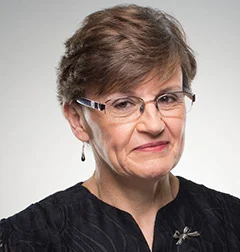
Wills & Estates Newsletter – July 2019
Published on July 22, 2019 by Adelaide Ryan, Hanaan Indari and Josephine Heesh
July 2019
Death Tax in Australia: A Reminder from the UK in Family Provision Claims
With speculation surrounding the federal election 2019 of a potential re-introduction of a “death or inheritance tax” in Australia, a recent settled matter Carroll & O’Dea were involved in demonstrates the difficulty in applying inheritance tax in family provision claims.
The deceased passed away in October 2015, leaving a will dated 27 April 1989 for his estate to pass to his first wife, one of his daughters, his brothers and sister in unequal shares. A later draft will by the deceased dated 16 June 2009 was ultimately accepted as the last ‘will’ leaving the entirety of his estate to his “children.”
The deceased had nine children; six of whom were from his first marriage and aged between 29 and 17 at the time proceedings commenced on 28 October 2016. The deceased also had three children (‘de-facto children’) from a de-facto (‘the de-facto’) relationship who were between two and five years of age at the same time.
Hanaan Indari, Partner
Sam Akon, Lawyer
Stamp Duty on Transferring Assets
How does section 63 of the Duties Act 1997 (NSW) affect distribution of assets from an estate?
Section 63 allows assets (primarily relevant for real estate and shares) to be transferred to beneficiaries in specie for $50 stamp duty provided the distribution is “in conformity with the Will.”
Questions can arise where the Will creates testamentary trusts and in lieu of a piece of real estate passing to a testamentary trust, a beneficiary may prefer to have that real estate passed to themselves personally.
Josephine Heesh, Partner
Wills & Estates FAQs
- What is a court-authorised will?
A court-authorised will functions the same as a personal will, however is proposed by someone else on behalf of a person who lacks testamentary capacity to make a will.
The will must be approved by the Supreme Court of NSW, which can also approve an alteration or revocation of a will in certain circumstances.
- What is testamentary capacity?
Testamentary capacity is a state of mind of a person of sound mind, memory and understanding. The following key elements required for testamentary capacity were stated in Banks v Goodfellow (1870) LR 5 QB 549 per Cockburn CJ:
The testator must:
-
- understand the nature of the testamentary act and its effect,
- understand the extent of the property being disposed, and
- comprehend and appreciate the claims to which he or she ought to give effect.
The modern elements for testamentary capacity were restated in Shaw v Crichton [1995] NSWCA 423 per Powell JA as follows:
The testator should be aware of:
-
- the significance of the act of writing a will,
- the nature, extent and value of his/her estate,
- those who might reasonably be thought to have a claim on his/her estate, and
- the basis of those claims and the ability to evaluate and discriminate between them.
- When might an application be warranted for a court-authorised will?
There is a wide set of circumstances in which an application may be warranted. For example:
-
- If there is a difficulty with an existing will, such as where a gift has lapsed or adeemed, or it is doubtful that the willmaker had testamentary capacity at the time the will was made,
- There is no existing will which means the intestacy provisions of the Succession Act 2006 (NSW) would come into effect on the death of a person without a will. One of the common examples is an incapacitated child who had suffered severe and irreversible brain injury and received significant compensation for the injury. Often one of the parents of the child is the sole carer of the child and the other parent may have no relationship with the child. Under the intestacy provisions both parents would equally inherit the child’s intestate estate on the death of the child. A court-authorised will may provide for the carer parent to receive the majority of the child’s estate.
- Estate planning may need to be effected, including for asset protection or tax planning reasons. For example, outright gifts under an existing will may be replaced with testamentary discretionary trusts, or a trust may be incorporated for the protection of a vulnerable beneficiary.
Adelaide Ryan, Associate


